HOME > Football
From bankruptcy warning to 100 million yuan signing: In-depth analysis of the financial compliance behind Manchester United s Haogou
11:10am, 7 June 2025【Football】

When supporters of many Premier League rival clubs witnessed Manchester United first reaching a Mattus Cunha deal with Wolves for £62.5 million, and then offering an initial offer of up to £55 million to Brentford's Brian Mbeumo. Given that United just hit the lowest ranking in the top league since 1974, failed to qualify for European competitions, and according to co-chairman Sir Jim Ratcliffe in March, the team could have gone bankrupt before Christmas without cost-cutting measures, why wouldn't United be in danger of violating the Premier League's Profit and Sustainability Rules (PSR)?
Manchester United has publicly expressed concerns about compliance with PSR, which was introduced in 2015 to prevent clubs from spending excessively and falling into financial difficulties. In January this year, in response to criticism from the fan group "1958" about the rising mid-season ticket prices, Manchester United said in an open letter that if relevant actions were taken, they "may not be able to meet the PSR/FFP requirements in the future." However, when the club's latest full-year financial results were released in September, CEO Omar Berrada said that Manchester United remained "committed to and comply with" the financial sustainability rules of the Premier League and UEFA, and in the end, Manchester United did not get punished by the Premier League for violating the 2023/24 season PSR.
Then, in the same interview with Ratcliff making his famous “bankruptcy” remarks, he claimed that this would not be a problem in the future, saying United were “in a comfortable range” in spending limits. He told BBC Sports: "We will not violate PSR." So, is Manchester United really risky? The situation is as complicated as ever, but the answer may be hidden in the consolidated group accounts of a little-known company, Red Football Limited.
Red Football was registered in the UK Company Registration Agency in February 2005, and just before the Glazer family took over, it was a subsidiary of Manchester United plc, the club's final parent company, which was listed on the New York Stock Exchange and released its quarterly financial report. Sources familiar with Manchester United's financial situation confirmed to him anonymously because of the sensitivity of the information that the accounts of red football are those submitted to the Premier League and UEFA for expenditure regulations tests. The Premier League declined to comment. UEFA said in a statement: “Unless the relevant independent agency has made a decision and communicated, UEFA will not comment on financial sustainability issues or the circumstances of a specific club.”
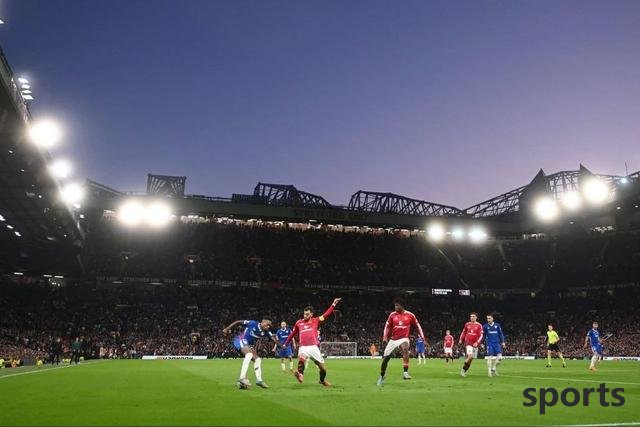
Although Manchester United's parent company is registered in the Cayman Islands, Red Football is registered with the UK Company Registration Agency. And it is crucial that under the Premier League regulations, clubs can only submit accounts of companies registered in the UK for PSR testing. Historically, there has been little significant difference between the accounts of Red Football and those of the Cayman Islands registered Manchester United parent company. However, this changed last season, with a large difference between some of the key figures in the two sets of accounts.
The starting point of the Premier League PSR calculation is the club's pre-tax profit or loss. The club's maximum loss in the three-year period was £105 million, after deducting expenses for women's football, youth training camps, community work and other beneficial causes. Manchester United's parent company level suffered a pre-tax loss of £130.7 million in the 2023/24 season, heightening concerns about possible violations. But Red Football's losses were much smaller, at just £36.2 million, a difference of £94.5 million from Manchester United's parent company. This figure was confirmed by UEFA's latest European Club Financial and Investment Outlook Report, which listed Manchester United's pre-tax loss for the 2023/24 season at £36 million, consistent with the accounts of Red Football.
This is related to whether Manchester United complies with the compliance of Premier League spending regulations. Manchester United's parent company's cumulative pre-tax loss during the three-year PSR cycle in the 2023/24 season was £311.9 million, while Red Football was only £200.6 million, a difference of £111.3 million. Any estimate of Manchester United's PSR status is just an estimate. Industry insiders emphasized that it is difficult to determine what exactly includes and exclude what PSR calculations are.
Both the Premier League and UEFA use the concept of "report scope" that requires the club to include all costs "related to football activities" which may cover the amounts under the name of other legal entities. However, the differences between Red Football and Manchester United's parent company's accounts show why a club that has suffered a significant loss for five consecutive years has not violated the top-flight spending rules.
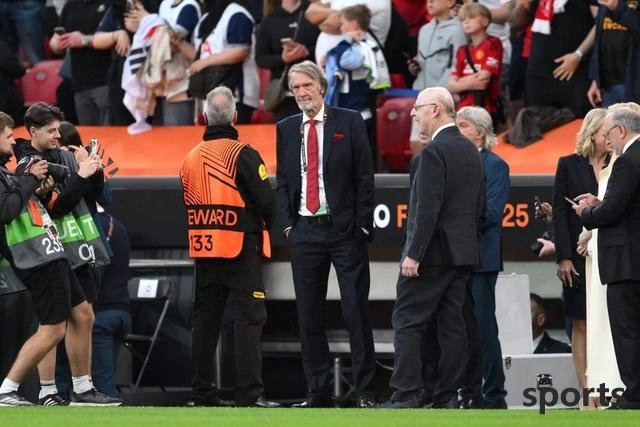
One of the biggest differences between the two companies' numbers last season was the special projects, with special projects in the accounts of Manchester United's parent company as high as £47.8 million due to the costs associated with Ratcliffe's investment. However, these costs were not passed on to Red Football. In the subsidiaries' accounts, the special projects are only £4.5 million, of which £3.6 million is compensation paid by management and senior employees when they leave.
It is generally believed that the costs associated with the purchase of Ratcliffe shares must be included in Manchester United's PSR calculations, as its inclusion will likely result in non-compliance. But the lack of these costs from the red football account shows that they have never been part of the equation. Red Football also benefited an additional £10.5 million from “recharged centralized service fees from other group companies” in the 2023/24 season, in other words, reallocating employee time to other parts of the business.
Manchester United sources said this is related to executives' business related to Manchester United's parent company listed on the New York Stock Exchange, such as investor relations. However, not all accounts differ favorably for Manchester United's PSR calculations. Another key difference is the financial cost – essentially, the interest arising from club borrowing. This figure is £61.4 million at Manchester United's parent company level, but only £21.1 million in Red Football's accounts, a difference of £40.3 million. At the same time, the accounts of Red Football's direct parent company, Red Football Joint Venture Limited (Red Football Joint Venture Limited, later referred to as Red Football Joint Venture Limited), show that it has a financial cost of £42.8 million.
Red Football is located above red football in Manchester United's corporate structure, outside accounts submitted to the Premier League and UEFA, although possible within the scope of the report. Red Football has not incurred any financial costs in the past decade until last season. The change appears to be because Red Football formally determined the inter-company balances owed by Red Football and its subsidiaries in December 2023, a move that converts those balances into interest-bearing intra-group loans, just before the agreement for Ratcliffe’s minority investments reached.

Red Football then benefited from this formalization, earning £25.1 million in interest income from intra-group loans. Although this income is offset at the parent company level, the interest cost generated in the red football generates income. This helps explain Red Football’s lower pre-tax losses – however, Manchester United sources revealed that interest income generated from intra-group loans is removed from the club’s PSR calculations, while the real cost of club debt (as seen in the parent company’s accounts) is reflected instead.
In addition, foreign exchange differences—such as the £12.4 million gain in Red Football’s 2024 account—are also excluded from PSR purposes. Therefore, the gap between the pre-tax loss calculated in Manchester United PSR and the pre-tax loss seen in Manchester United's parent company's accounts is not as large as if the bottom line number of red football was used directly. Sources at Old Trafford believe that Manchester United's handling of costs is literally and spiritually appropriate in the rules and is consistent with what other clubs do.
When asked to comment, Manchester United reiterated Berrada's previous statement and the club's full-year results for the 2023/2024 season: "The club remains committed to and comply with the Premier League's profit and sustainability rules and UEFA's financial fair play regulations."
Other Premier League clubs also allocate costs to independent companies in their broader corporate structure. When Chelsea sold in May 2022, former club directors received a total of £49.75 million for services related to the club's sale. The services are considered to be beyond the scope of the directors’ employment contract with the club and are paid by Blueco 22 Limited, now the Chelsea parent. Therefore, these costs are excluded from the club accounts and are not included in their PSR calculations.
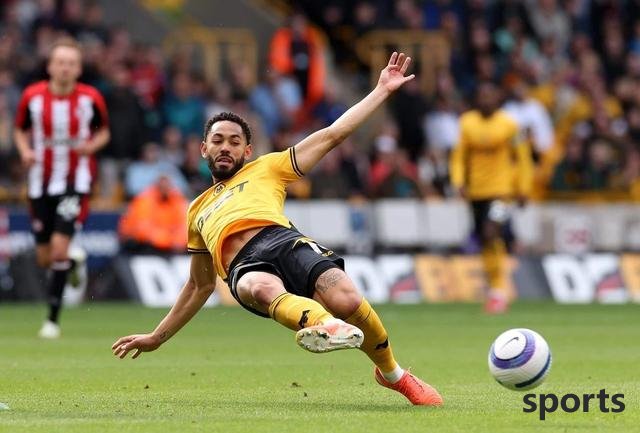
On the other hand, the "report scope" mentioned by the Football Administration is intended to ensure that all costs associated with football clubs are included in the PSR submissions, even if they occur elsewhere in the corporate structure. According to the UEFA report cited earlier, Manchester City's payroll for the 2023/24 season was £475.8 million - £63.2 million more than the staff costs disclosed in the club's accounts. If any of Manchester United's football-related costs occur outside the Red Football Group, the rules stipulate that they are still included in the club's PSR submission.
results show that Manchester United owns and should continue to have more PSR space available than the Manchester United parent company based on the Cayman Islands registration has previously estimated. The 2024/25 season PSR test for the Premier League will be based on fiscal years ending June 30, 2023, 2024 and 2025. Red Football's cumulative pre-tax loss for the two full fiscal years ended June 2024 was £55.1 million — well below the £105 million limit, even before any deductions were applied.
Based on the assumptions related to deductions and additions, Manchester United lost approximately £141 million in the 2024/25 season alone, which will still comply with the PSR regulations after adjusting to exclude financial income and any foreign exchange differences from intra-group loans. Starting from July 1, a new PSR cycle will begin, covering fiscal years ending June 30, 2024, 2025 and 2026.
Although it is still far from the summer of 2026 and no reasonable estimate can be made, Red Football's pre-tax loss for £36.2 million in the first year of those three years was once again significantly below the £105 million limit, even before acceptable deductions. So concerns over whether Manchester United complies with Premier League rules can be largely put on the side, but that doesn't mean clubs can spend money desperately. Manchester United also generally also needs to comply with UEFA's financial fair play rules, which sets stricter limits for allowed losses – typically £50.5 million in three years, after similarly acceptable deductions. Manchester United will not be tested by UEFA rules because they fail to qualify for European competitions this season. But that doesn't mean they can spend money at will. Spending this summer will be included in UEFA's three-year cycle tests in 2026/27 and 2027/28, when Manchester United hopes to return to European competitions.
clubs not only need enough regulatory space to spend money, but also tangible cash – Old Trafford has been relatively short of cash over the past few years. According to Manchester United's second-quarter financial report, as of the end of last year, the cash and cash equivalents in the club's banks were £95.5 million. Although Ratcliff injected £238.5 million in cash just 10 months after becoming a minority shareholder.
For many years, spending money like a club in the Champions League, but not in the Champions League, these days finally began to catch up with Manchester United. Although Manchester United is not the only club to pay transfer fees in installments, the bills of more than £300 million are finally starting to make an impact.
In an interview with The Overlap in March, Ratcliff revealed that even if the club does not make any new signings this summer, they will "write a £89 million check" for players they have signed, citing Anthony, Sancho, Heilund, Casemiro and Onana as examples. In theory, the £89 million check will almost immediately run out of Manchester United's current cash reserves. Manchester United's third-quarter earnings report will be released on Friday, covering the three months to the end of March, and will provide a clearer picture of their cash position entering the summer. There are already some signs that resources need to be managed with caution. During Cunha's negotiations, Wolves were willing to accept installments, but rejected Manchester United's proposal to pay five times, insisting on paying £20.8 million in equal amounts within two years, in line with the players' terms of termination. Negotiations with Brentford on Mbeumo will also be instructive in this regard.
In the past, when cash was tight, Manchester United usually used their revolving credit facility where they could borrow up to £300 million. By the end of last year, Manchester United had owed the facility £210 million, meaning there is still £90 million in borrowing space. Friday’s third-quarter earnings may reveal whether they took advantage of the opportunity before a major summer.
However, as Ratcliff might say, there is no free lunch in the world. Any withdrawal of credit facilities will increase United's total debt, last counted at £731 million and will eventually require repayment or refinancing. This is also why the funds generated through player sales will still play a major role in United's summer and why Riyadh Crescent's huge offer to captain Bruno Fernandez may be considered.
But when it comes to spending rules for the Premier League and UEFA, those who know Manchester United's financial situation feel at ease with their PSR status in the summer. Judging from the accounts of Red Football, it is easier to understand why - even if many opponent fans may still be skeptical.
Bóng Đá 7MRelated Posts
- Frank: The game proves that we have the ability to compete with the best teams in the world, and more than just competition
- Tough statement + salary cut concessions! Zhekelais rushed to Arsenal with a buzzer-beating
- Overtime work ends in the 2024-25 season. Top 10 of the five major leagues are released. Real Madrid occupies 6 seats
- MiTi: Dybala wants to stay in Rome, if the club offers a renewal offer, he is willing to negotiate
- Reporter: Inter Milan 30 million euros + Stankovic tried to sign Jasari, but the latter refused to join
- The 4 Brazilian teams in the Club World Cup qualify for all the teams, and both Argentina teams were eliminated, but they could not fill in the 10 points behind Argentina in the World Cup qualifiers.
- Real Madrid and Atletico Madrid have brought two unpopularities, South America s quarterfinals remain unbeaten, Club World Cup is not the World Cup
- Photo: Sane did receive special care, but it does not mean that he will not play in the Club World Cup at all
- Dima: Allegri strives to push Milan to sign Rabiot, Marseille will not stop him from leaving the team
- Friday 003 Dutch 2> Tersda vs. Dembos
Hot Posts
- Frank: The game proves that we have the ability to compete with the best teams in the world, and more than just competition
- Tough statement + salary cut concessions! Zhekelais rushed to Arsenal with a buzzer-beating
- Overtime work ends in the 2024-25 season. Top 10 of the five major leagues are released. Real Madrid occupies 6 seats
- MiTi: Dybala wants to stay in Rome, if the club offers a renewal offer, he is willing to negotiate
Recommend

Hand over the baton! The Legend of Modric is in Leal, and the stage of San Siro has lit up a new spotlight for him

Paris Saint-Germain is on the rise! The lost face is finally recovered, will Bayern challenge the next battle?
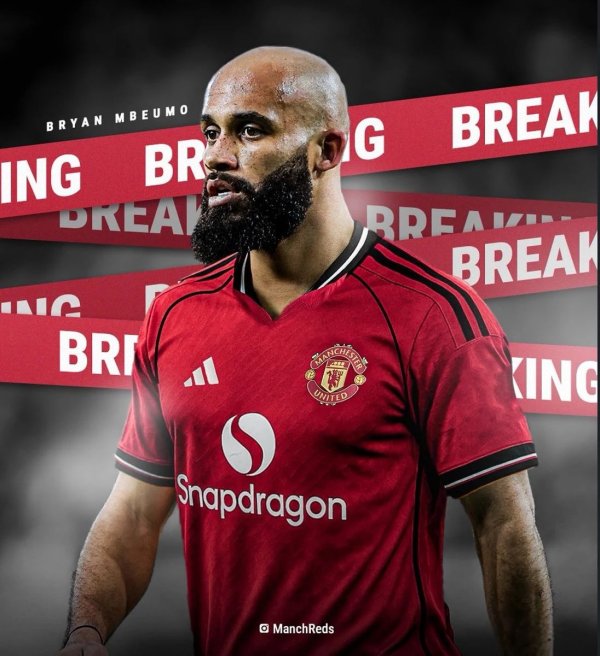
Manchester United s third offer for Mbemo is revealed, and the reason for meeting the 70 million requirement is revealed! Revealing the three-win setting of La Jue

The experience of adult teams will be reused in 65 games? Real Madrid has made a bold plan for new player Mastantono!

25.5.23 Friday Football Selection Three Games Analysis and Forecast Attached Scores Goals
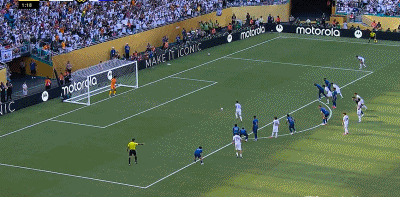
Penalty spell is not over: Real Madrid has lost 7 penalty shots this season
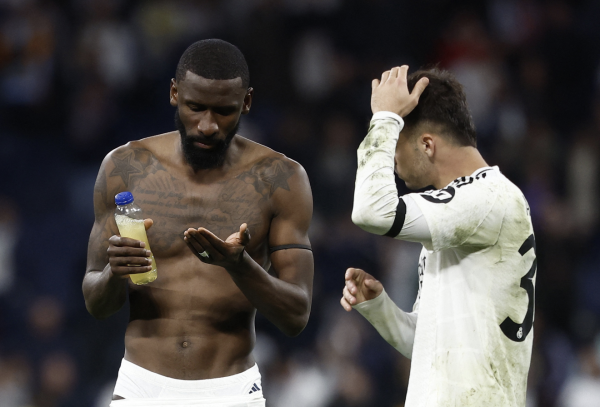
"Team News" criticized Real Madrid s defense: Asensio and Rudiger only scored 2 points

Alonso is amazing! Real Madrid scored 8 consecutive passes, but the opponent could not touch the ball throughout the whole process, and mercury was pouring out